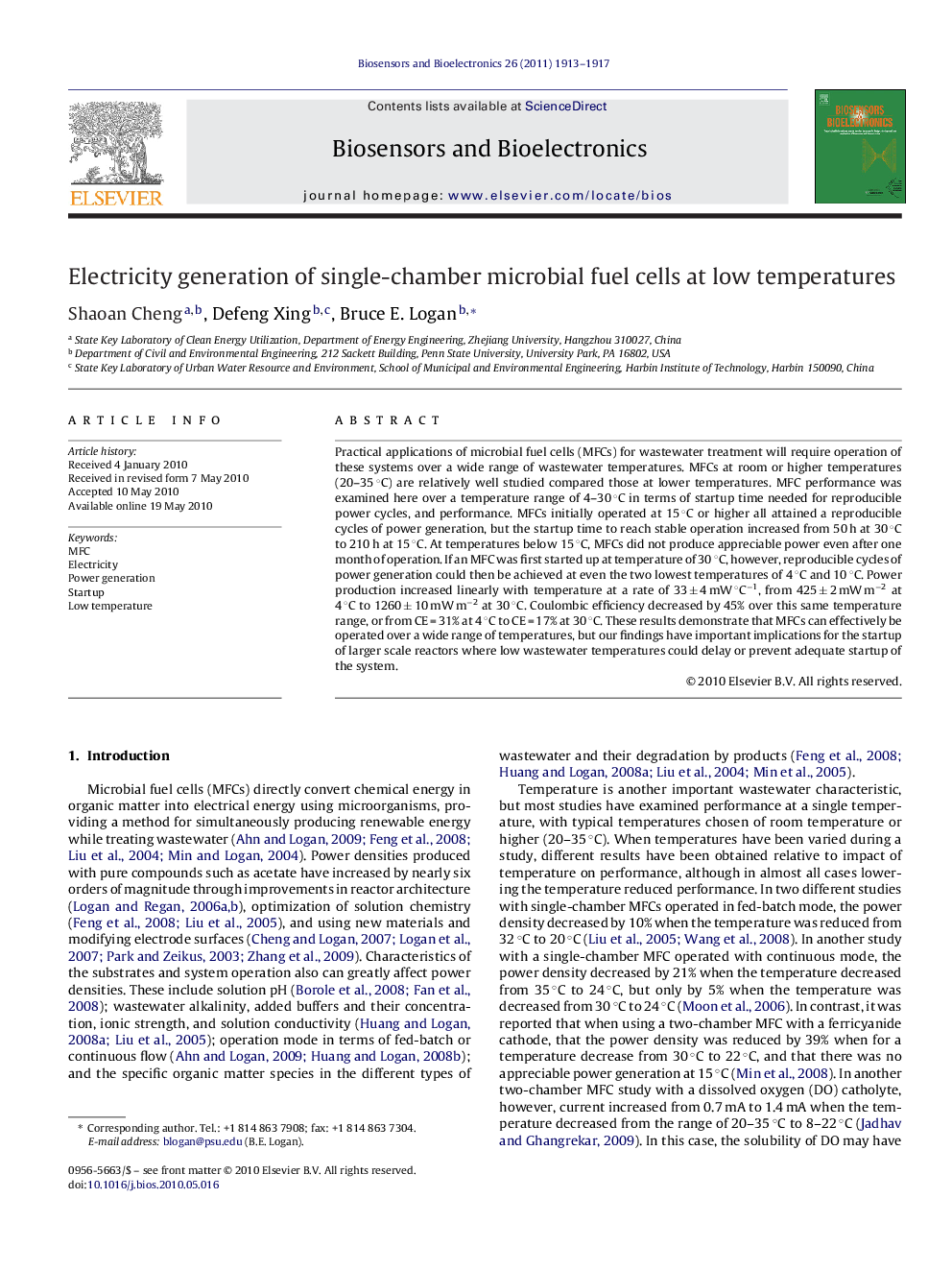| Article ID | Journal | Published Year | Pages | File Type |
|---|---|---|---|---|
| 868133 | Biosensors and Bioelectronics | 2011 | 5 Pages |
Practical applications of microbial fuel cells (MFCs) for wastewater treatment will require operation of these systems over a wide range of wastewater temperatures. MFCs at room or higher temperatures (20–35 °C) are relatively well studied compared those at lower temperatures. MFC performance was examined here over a temperature range of 4–30 °C in terms of startup time needed for reproducible power cycles, and performance. MFCs initially operated at 15 °C or higher all attained a reproducible cycles of power generation, but the startup time to reach stable operation increased from 50 h at 30 °C to 210 h at 15 °C. At temperatures below 15 °C, MFCs did not produce appreciable power even after one month of operation. If an MFC was first started up at temperature of 30 °C, however, reproducible cycles of power generation could then be achieved at even the two lowest temperatures of 4 °C and 10 °C. Power production increased linearly with temperature at a rate of 33 ± 4 mW °C−1, from 425 ± 2 mW m−2 at 4 °C to 1260 ± 10 mW m−2 at 30 °C. Coulombic efficiency decreased by 45% over this same temperature range, or from CE = 31% at 4 °C to CE = 17% at 30 °C. These results demonstrate that MFCs can effectively be operated over a wide range of temperatures, but our findings have important implications for the startup of larger scale reactors where low wastewater temperatures could delay or prevent adequate startup of the system.
